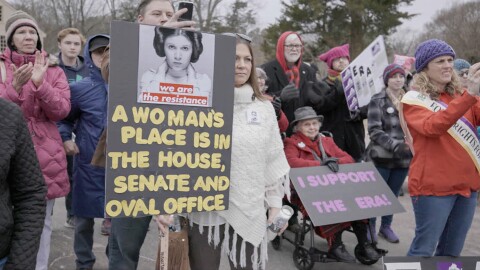
Adrian Florido
Border ReporterAdrian Florido is a reporter for the Fronteras Desk where he covers the U.S.-Mexico border, immigrant and tribal communities, demographics, and culture. Before joining KPBS, he was a staff writer at Voice of San Diego. There he reported on San Diego neighborhoods, focusing on immigrant and under-served communities as well as development, planning, land use, and transportation. For a year, he delivered a weekly television segment on NBC San Diego. He's a Southern California native who moved to San Diego in 2009 after earning an undergraduate degree at the University of Chicago. He majored in history with an emphasis on the US and Latin America. In college he was news editor of the student paper, the Chicago Maroon, and also spent time reporting from Capitol Hill and working with the advocacy group Reporters Without Borders. He also likes to eat. A lot. And he likes to run to keep up his appetite. And he likes good music.
-
The Padre Chava breakfast hall serves more than 1,100 people every morning, most are deportees from the U.S. But many have one thing in common — a desire to return.
-
The growth rate of multiracial Americans is far outpacing the growth of the U.S. population as a whole.
-
Government says accused border agents' names should remain secret in court, but the ACLU disagrees.
-
Vicente Fox says legalized and regulated marijuana could address national security and economic problems.
-
The trajectory from recent deportee to homeless and destitute can be swift for people dropped off in border cities without money or ties.
-
"East Los High" follows the lives of Latino teenagers in East Los Angeles, and the pressures they face from sex, violence and bullying.
- Vance, Hegseth Camp Pendleton event snarls traffic, riles local officials
- Protestors gather for 'No Kings' rallies in downtown San Diego
- I-5 to close in both directions along Camp Pendleton Saturday, CHP says
- Tens of thousands expected to hit the streets for second 'No Kings' rallies
- In photos: 'No Kings' protesters march in downtown San Diego








